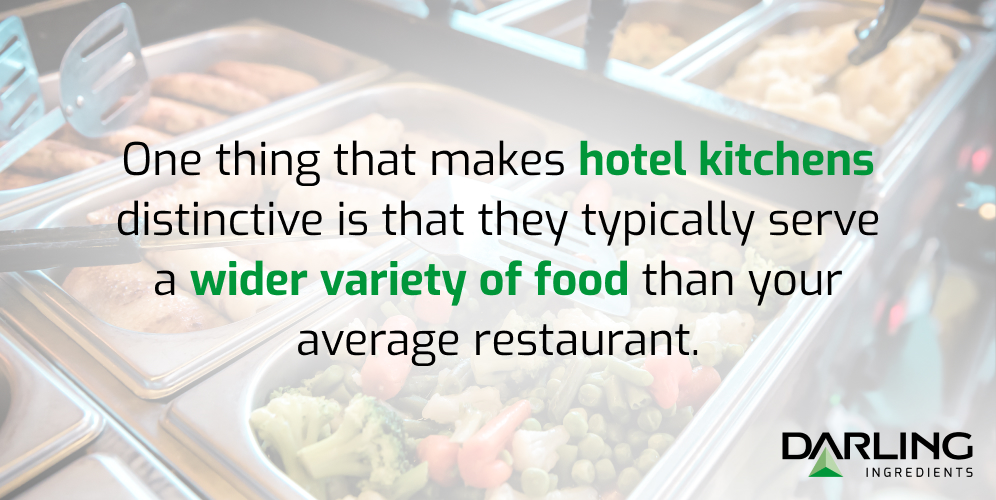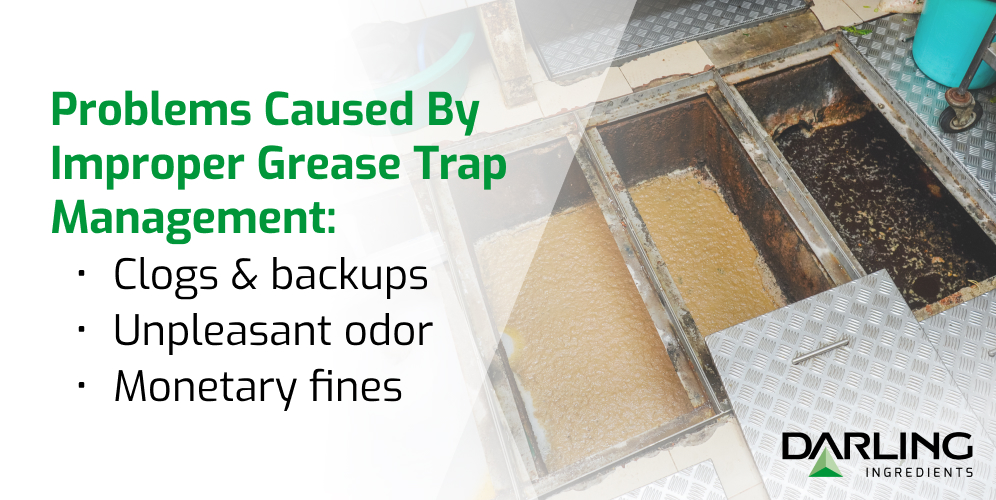Best Practice 1: Kitchen Design
Ergonomics within a hotel kitchen, and any restaurant, are vital to a smooth running operation. Time management and efficiency are essential in hospitality, and you want the chef and the rest of the team to move around all kitchen areas freely while creating each dish.
The first step in creating a functional kitchen is figuring out how much space you have. After determining the available space, it is time to consider how many diners you intend to serve and how diverse you would like the menu to be.
Restaurant kitchens are divided into different stations for different dishes, so the menu’s diversity and space will play a role in the layout. Designing the kitchen with these things in mind will help the operation run efficiently and, in turn, provide the best possible experience for the guests.

Best Practice 2: Take Advantage of Technology
A hotel kitchen’s technology and appliance needs are similar to those of a commercial kitchen, but hotel kitchens also come with some unique needs. It would help to have the proper storage and refrigeration, determined mainly by the amount of premade, prepackaged items on the menu vs. the made-to-order ones.
Additionally, using analytics technology to help track which menu items are most popular and which are not selling will better optimize both your menu and your inventory. Menu items you rarely order can clog up your storage space and menu. Analytics helps you determine which things are worth keeping on and which may be better to let go of.
According to Hotelier, employees spend 40% of the energy consumed in a hotel kitchen cooking and storing food, with 33% of the energy cost heating the food and water. To conserve energy and money, consider investing in energy-efficient appliances so they do not run day and night when unused.
Best Practice 3: Managing the Menu
One of, if not the most crucial parts of kitchen operation is the construction of your menu and the food and drink preparation process. Hotels are open 24/7, 365 days a year. Most offer breakfast, lunch, and dinner, room service, grab-n-go stations, or other areas where guests can get food or drink. This setup makes the requirements for hotel kitchens unique.
Once again, it is critical to determine which meals you will offer and how many menu items are made to order versus premade to determine the layout and organization needed to manage the inventory. Think about how expansive you want your room service menu to be. Also, consider how different you expect the lunch and dinner dine-in menus to be from each other.
One thing that makes hotel kitchens distinctive is that they typically serve a wider variety of food than your average restaurant. This assortment has to do with the fact that the people dining in the restaurant presumably stay at the same establishment. To avoid a headache when operating the kitchen, carefully craft your menu and dining experience to focus on functionality and efficiency.

Best Practice 4: Waste Management
Hotels are large businesses with many different operations occurring on one property, and waste management is a large part of the overall operation. When it comes to your hotel kitchen operation, managing food-related waste, used cooking oil recycling included, is a vital part.
Consider whether your restaurant is on the ground floor or if you need to haul the grease to the outdoor grease storage bin from a higher-up floor. Proper equipment and a reputable provider can help you seamlessly dispose of and recycle your spent cooking oil.
An employee spilling, slipping, falling, or burning themselves while haphazardly carrying a pot of hot oil across a hotel lobby is the last thing you want. It may not be the first or even the tenth thing on your mind when planning your kitchen operation, but a plan to handle the oil waste will save you time, money, and a headache in the long run.
Another element in your kitchen operation related to your cooking oil is your grease trap. A potential clog or backup stemming from the kitchen can lead to a big mess in the kitchen and elsewhere in the hotel. At worst, improper grease trap management could lead to monetary fines. At best, it could create an unpleasant and lingering odor that bothers employees and guests.

Seamless Disposal Services
Within any kitchen operation, waste is a natural byproduct you have to manage. Planning how to do it is essential, particularly when considering a kitchen’s joint union with the rest of the hotel and guest operations.
Be aware of the unique needs of hotel kitchens and how they vary from traditional ones to open and run your kitchen smoothly and efficiently while providing the utmost service to your guests.
Darling Ingredients Canada is committed to providing seamless and hassle-free used cooking oil disposal services. With pick-up services, grease trap cleaning, and much more, we offer the perfect solution for your unique needs. Let us take care of it, so you don’t have to. Call us today at 1-800-263-0302.
Contact Sales
For customer service inquiries call our toll free number (800) 263-0302
By submitting this form I agree to the privacy policy including the usage of contact details to contact me for marketing purposes.
